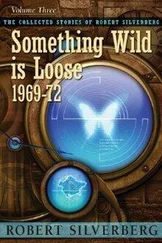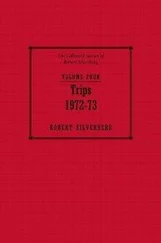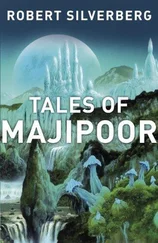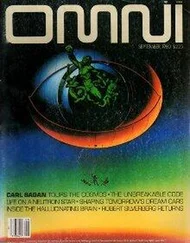Robert Silverberg - Looking for the Fountain
Здесь есть возможность читать онлайн «Robert Silverberg - Looking for the Fountain» весь текст электронной книги совершенно бесплатно (целиком полную версию без сокращений). В некоторых случаях можно слушать аудио, скачать через торрент в формате fb2 и присутствует краткое содержание. Год выпуска: 2014, ISBN: 2014, Издательство: Subterranean Press, Жанр: Фантастика и фэнтези, на английском языке. Описание произведения, (предисловие) а так же отзывы посетителей доступны на портале библиотеки ЛибКат.
- Название:Looking for the Fountain
- Автор:
- Издательство:Subterranean Press
- Жанр:
- Год:2014
- ISBN:978-1-59606-705-9
- Рейтинг книги:5 / 5. Голосов: 1
-
Избранное:Добавить в избранное
- Отзывы:
-
Ваша оценка:
- 100
- 1
- 2
- 3
- 4
- 5
Looking for the Fountain: краткое содержание, описание и аннотация
Предлагаем к чтению аннотацию, описание, краткое содержание или предисловие (зависит от того, что написал сам автор книги «Looking for the Fountain»). Если вы не нашли необходимую информацию о книге — напишите в комментариях, мы постараемся отыскать её.
Looking for the Fountain — читать онлайн бесплатно полную книгу (весь текст) целиком
Ниже представлен текст книги, разбитый по страницам. Система сохранения места последней прочитанной страницы, позволяет с удобством читать онлайн бесплатно книгу «Looking for the Fountain», без необходимости каждый раз заново искать на чём Вы остановились. Поставьте закладку, и сможете в любой момент перейти на страницу, на которой закончили чтение.
Интервал:
Закладка:
Nay, I have spoken untruthfully, for the men of that lost voyage did leave other remnants of themselves among the villagers beside our holy faith, which I have neglected to mention here, but which I will tell you of now.
For after we had been in that village several days, the cacique led us through the close humid forest along a tangled trail to a clearing nearby just to the north of the village, and here we saw certain tangible remains of the voyagers: a graveyard with grave markers of white limestone, and the rotting ribs and strakes and some of the keel of a seafaring vessel of an ancient design, and the foundation walls of a little wooden church. All of which things were as sad a sight as could be imagined, for the gravestones were so weathered and worn that although we could see the faint marks of names we could not read the names themselves, and the vessel was but a mere sorry remnant, a few miserable decaying timbers, and the church was only a pitiful fragment of a thing.
We stood amidst these sorry ruins and our hearts were struck into pieces by pity and grief for these brave men, so far from home and lonely, who in this strange place had nevertheless contrived to plant the sacred tree of Christianity. And the noble Don Juan Ponce de Leon went down on his knees before the church and bowed his head and said, “Let us pray, my friends, for the souls of these men, as we hope that someday people will pray for ours.”
We spent some days amongst these people in feasting and prayer, and replenishing our stock of firewood and water. And then Don Juan Ponce gave new thought to the primary purpose of our voyage, which was, to find the miraculous Fountain that renews a man’s energies. He called Pedro de Plasencia to his side and said, “Ask of the cacique, whether he knows such a Fountain.”
“It will not be easy, describing such things in my poor Latin,” answered Pedro. “I had my Latin from the Church, Don Juan, and what I learned there is of little use here, and it was all so very long ago.”
“You must try, my friend. For only you of all our company has the power to speak with him and be understood.”
Whereupon Pedro went to the cacique; but I could see even at a distance that he was having great difficulties. For he would speak a few halting words, and then he would act out his meaning with gestures, like a clown upon a stage, and then he would speak again. There would be silence; and then the cacique would reply, and I would see Pedro leaning forward most intently, trying to catch the meaning of the curious Latin that the cacique spoke. They did draw pictures for each other also in the sand, and point to the sky and sweep their arms to and fro, and do many another thing to convey to each other the sense of their words, and so it went, hour after hour.
At length Pedro de Plasencia returned to where we stood, and said, “There does appear to be a source of precious water that they cherish on this island, which they call the Blue Spring.”
“And is this Blue Spring the Fountain for which we search?” Don Juan Ponce asked, all eagerness.
“Ah, of that I am not certain.”
“Did you tell him that the water of it would allow a man to take his pleasure with women all day and all night, and never tire of it?”
“So I attempted to say.”
“With many women, one after another?”
“These are Christian folk, Don Juan!”
“Yes, so they are. But they are Indians also. They would understand such a thing, just as any man of Estramadura or Galicia or Andalusia would understand such a thing, Christian though he be.”
Pedro de Plasencia nodded. “I told him what I could, about the nature of the Fountain for which we search. And he listened very close, and he said, Yes, yes, you are speaking of the Blue Spring.”
“So he understood you, then?”
“He understood something of what I said, Don Juan, so I do firmly believe. But whether he understood it all, that is only for God to know.”
I saw the color rise in Don Juan Ponce’s face, and I knew that that restless choleric nature of his was coming to the fore, which had always been his great driving force and also his most perilous failing.
He said to Pedro de Plasencia, “And will he take us to this Blue Spring of his, do you think?”
“I think he will,” said Pedro. “But first he wishes to enact a treaty with us, as the price of transporting us thither.”
“A treaty.”
“A treaty, yes. He wants our aid and assistance.”
“Ah,” said Don Juan Ponce. “And how can we be of help to these people, do you think?”
“They want us to show them how to build seafaring ships,” said Pedro. “So that they can sail across the Ocean Sea, and go to the rescue of the Holy Land, and free it from the paynim hordes.”
There was much more of back and forth, and forth and back, in these negotiations, until Pedro de Plasencia grew weary indeed, and there was not enough wine in our sacks to give him the rest he needed, so that we had to send a boat out to fetch more from one of our ships at anchor in the harbor. For it was a great burden upon him to conduct these conversations, he remembering only little patches of Church Latin from his boyhood, and the cacique speaking a language that could be called Latin only by great courtesy. I sat with them as they talked, on several occasions, and not for all my soul could I understand a thing that they said to each other. From time to time Pedro would lose his patience and speak out in Spanish, or the cacique would begin to speak in his savage tongue or else in that other language, somewhat like Provencal, which must have been what the seafaring Crusaders spoke amongst themselves. But none of that added to the understanding between the two men, which I think was a very poor understanding indeed.
It became apparent after a time that Pedro had misheard the cacique’s terms of treaty: what he wished us to do was not to teach them how to build ships but to give them one of ours in which to undertake their Crusade.
“It cannot be,” replied Don Juan Ponce, when he had heard. “But tell him this, that I will undertake to purchase ships for him with my own funds, in Spain. Which I will surely do, after we have received the proceeds from the sale of the water from the Fountain.”
“He wishes to know how many ships you will provide,” said Pedro de Plasencia, after another conference.
“Two,” said Don Juan Ponce. “No: three. Three fine caravels.”
Which Pedro duly told the cacique; but his way of telling him was to point to our three ships in the harbor, which led the cacique into thinking that Don Juan Ponce meant to give him those three actual ships then and now, and that required more hours of conferring to repair. But at length all was agreed on both sides, and our journey toward the Blue Spring was begun.
The cacique himself accompanied us, and the three priests of the tribe, carrying the heavy wooden crosses that were their staffs of office, and perhaps two dozen of the young men and girls of the village. In our party there were ten men, Don Juan Ponce and Pedro and I, and seven ordinary seamen carrying barrels in which we meant to store the waters of the Fountain. My wife Beatriz and her sister Juana accompanied us also, for I never would let them be far from me.
Some of the ordinary seamen among us were rough men of Estramadura, who spoke jestingly and with great licentiousness of how often they would embrace the girls of the native village after they had drunk of the Fountain. I had to silence them, reminding them that my wife and her sister could overhear their words. Yet I wondered privately what effects the waters would have on my own manhood: not that it had ever been lacking in any aspect, but I could not help asking myself if I would find it enhanced beyond its usual virtue, for such curiosity is but a natural thing to any man, as you must know.
Читать дальшеИнтервал:
Закладка:
Похожие книги на «Looking for the Fountain»
Представляем Вашему вниманию похожие книги на «Looking for the Fountain» списком для выбора. Мы отобрали схожую по названию и смыслу литературу в надежде предоставить читателям больше вариантов отыскать новые, интересные, ещё непрочитанные произведения.
Обсуждение, отзывы о книге «Looking for the Fountain» и просто собственные мнения читателей. Оставьте ваши комментарии, напишите, что Вы думаете о произведении, его смысле или главных героях. Укажите что конкретно понравилось, а что нет, и почему Вы так считаете.












